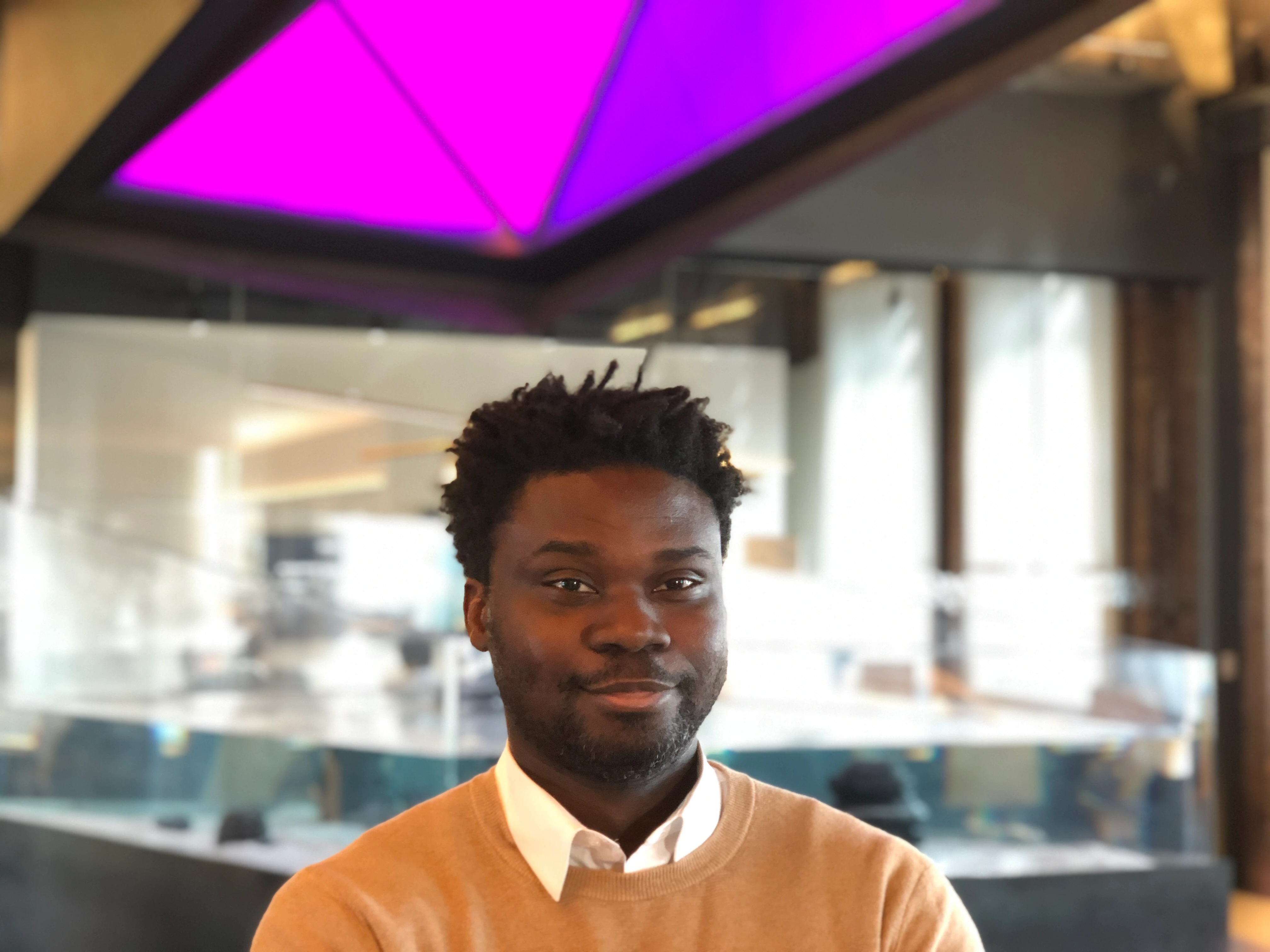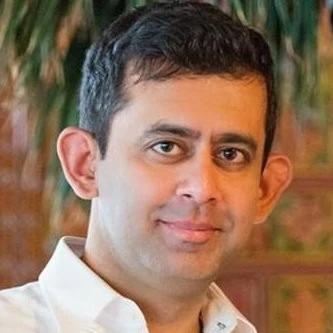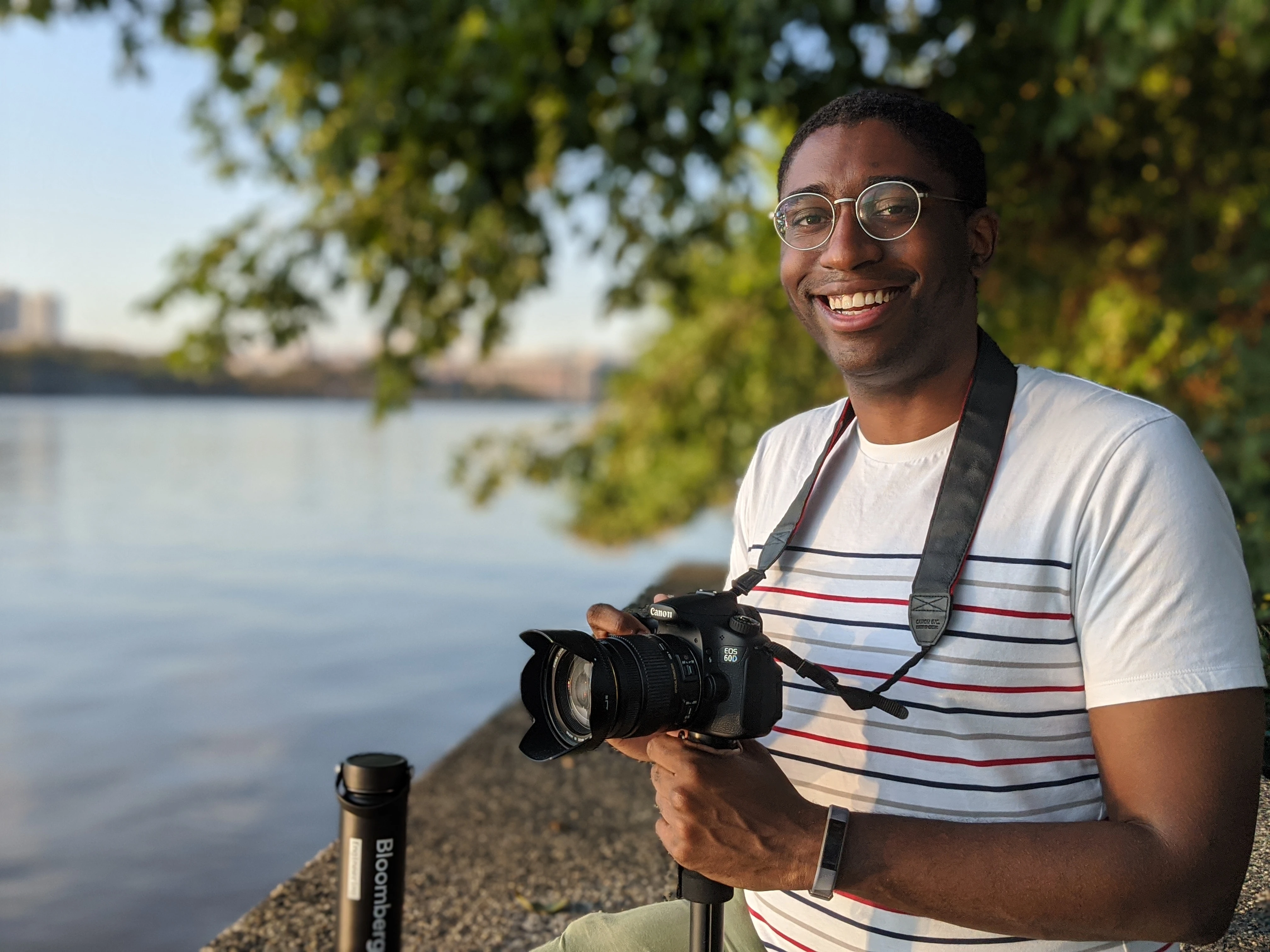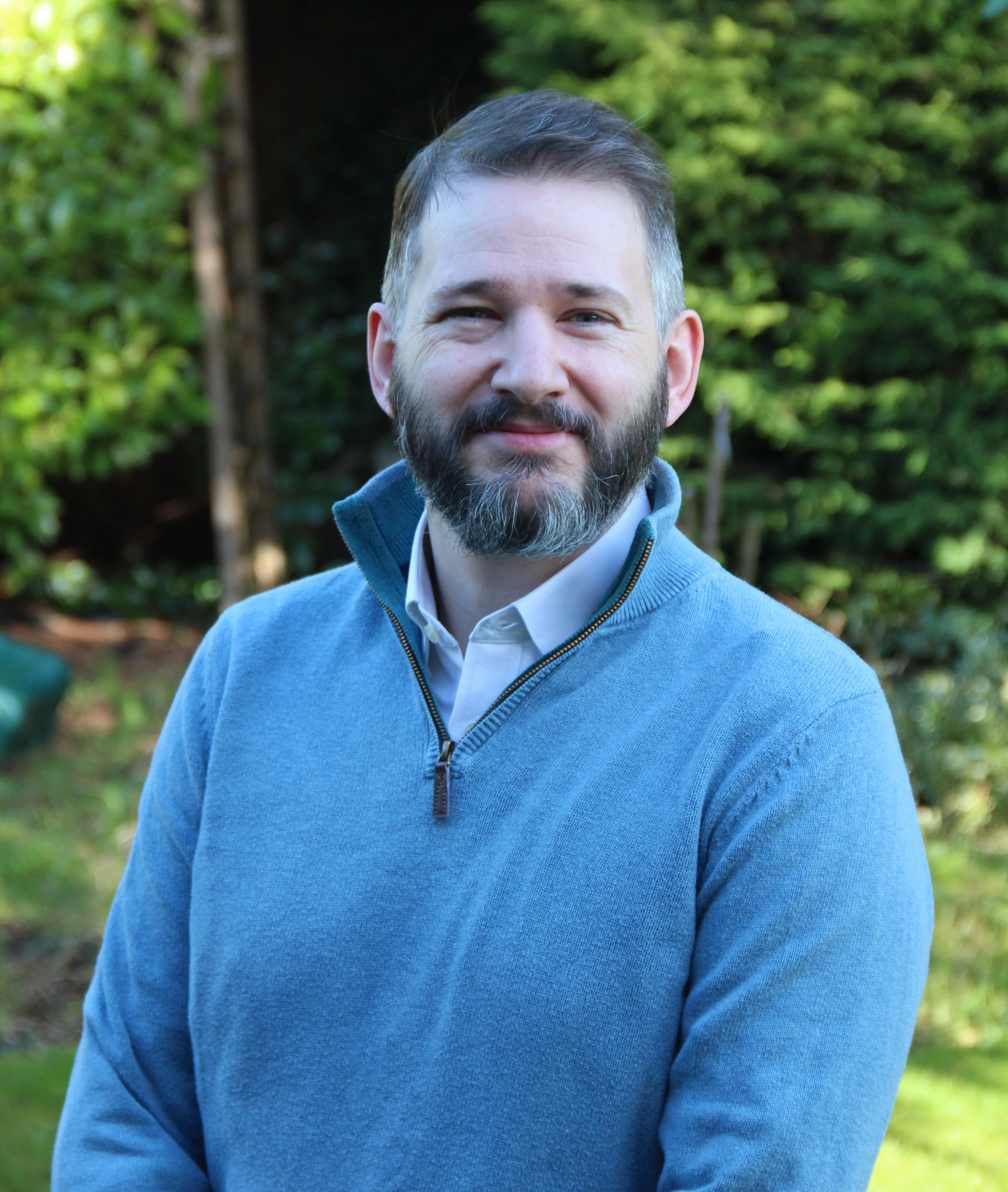How mentorship levels the playing field for Bloomberg’s Black technologists
February 03, 2022
Mentorship is a vital component of inclusion strategies, especially when trying to attract and retain diverse talent.
One study found that women and people from underrepresented groups are more likely to say that mentoring was an important aspect of their career progression. But, for it to be successful in helping with career advancement, research indicates that mentorship must be more than simply instructional; a mentor must play the dual role of coach and counselor. And, even though there are obvious benefits for the mentee, there may also be benefits for the mentor.
Companies must understand how to effectively establish mentorship programs when trying to recruit and retain talent. It is also important for employees from underrepresented backgrounds to understand how to effectively and strategically seek out and engage with their mentors.
Numerous mentorship programs have been implemented across Bloomberg to help accelerate the growth potential of high-performing employees from different backgrounds. This includes targeted mentorship programs that pair Black employees with managers for career development opportunities.
One of these efforts, the Bloomberg Black in Tech Mentorship Program, was launched for the first time early last in 2021, with 15 pairs of mentors/mentees. The goals of this tailored mentorship program were to provide members of the Bloomberg Black in Tech (BBIT) group from around the globe with the opportunity to broaden their networks, increase their visibility, retain and engage talent, foster career development (for both mentors and mentees), and continue creating an inclusive and diverse culture within Engineering.
We spoke to two mentor/mentees pairs to learn how the BBIT Mentorship Program helped them grow professionally: Akin Mousse (San Francisco) and Akshit Kumar (New York), and Meshach Jones (New York) and Peter Baxter (London).
Tell us about your role & how long you’ve been at Bloomberg.
Akin: I joined Bloomberg in London almost nine years ago as part of the Desktop Build Group (DBG). I had the opportunity to move to San Francisco in 2015 and transitioned into a software engineer role two years ago by joining the BQuant Financial Libraries (FinLibs) team. My main focus is to create user-facing APIs that our clients can use with the BQuant platform to help facilitate their investment decisions.
Akshit: Bloomberg was my first job after school, and I have been working here for more than 18 years. In my current role as Engineering Manager for Currency & Commodities Trading Applications (FXGO & CMET), I get to not only work and learn from my team members, but also to collaborate with the wider Engineering organization and our Product & Sales counterparts.
Meshach: I joined Bloomberg around four and a half years ago, straight from university. Since joining the company, I’ve worked on several teams in AIM’s compliance area. I’ve focused on a range of projects from search improvement to re-designing how we generate our market value calculations.
Peter: I’m in a leadership role in Markets, Community & AI (MCA), responsible for Worksheets and Dynamic List. I’ve been at Bloomberg for 15 years and have spent time in a number of different roles, mainly in MCA, where I’ve been a TL for three teams.


Why were you interested in volunteering to participate in this mentorship program?
Akin: I decided to join BBIT after transferring from the Desktop Build Group to the BQuant Engineering team. My main goal was to find people who looked like me and were part of the Engineering department. I was looking for a community I could leverage while making this transition. When BBIT offered a mentorship program in early 2021, I quickly volunteered to take part as a mentee, as I saw it as a career and personal growth opportunity.
Akshit: For me, there were two specific reasons I decided to take part as a mentor.
First, through every stage of my career, various people had unofficially mentored me. They not only honed my analytical and decision-making skills, but also opened their networks to me. Having spent the time I have at Bloomberg, I felt that it was time to do my best to pass on the lessons I had learned about leadership.
Second, and just as important, I expected it to be a great learning experience for me. In the past, I have mentored individuals who were up for a career progression. However, I felt that the BBIT Mentorship Program would help me learn how to be a better mentor and more inclusive leader, as I would be getting the opportunity to learn with Akin, who is at a different point in his career.
Meshach: I was interested in joining the BBIT Mentorship Program, as it would allow me to advance my career progression. Having a mentor who was allied with a group I was deeply ingrained with provided me with a base level of comfort. This was a critical element since both parties have to be trusting and willing to be vulnerable with one another for mentorship to work successfully. I also wanted to participate in the program to help grow connections from BBIT to the wider Bloomberg organization.
Peter: Mentoring is a large part of leadership, and it’s one of the main reasons why I enjoy being a leader. I really like discussing the different challenges that people face and the different ways we can solve problems. I particularly enjoy talking about leadership and how to build a team. Mentoring new people with different backgrounds from other areas of the company also gives me exposure to the variety of different challenges that people face. Learning about the experience of others will hopefully make me a better leader.


As a mentor, what did you learn from your relationship with your mentee that surprised you?
Akshit: Quite a lot. Akin and I were quickly able to establish trust between us. In our first session, we shared our personal life journeys and were surprised how many things we had in common.
We then started our journey in a truly agile fashion. Every time we met, we spent time reviewing the key impressions Akin had taken from our prior discussion. As you can imagine, this was eye-opening. I could clearly see examples of where innocuous confirmation bias may have seeped into my viewpoint about some topics. It truly became a two-way learning experience.
Peter: I’ve been here a long time, so it takes a lot to surprise me! It was interesting to learn about the leadership structure in Meshach’s area, and the particular challenges he has faced with regards to career development. We also spent time discussing how he could be more proactive in conversations about his career. One thing I’ve learnt from working with lots of people is that, even though everyone’s career journey is unique, there are definitely a lot of experiences worth sharing
As a mentee, have you seen a positive impact on your career since joining the program?
Akin: My relationship with Akshit has not only had a positive impact on my career, but also my personal life. In our recurring conversations, Akshit helped me to see things differently. Our discussions helped me grow and be more proactive about establishing, tracking, and assessing my career and life goals. Even though the mentorship program has ended, Akshit and I still meet regularly. Having an ongoing opportunity to talk with him, exchange ideas, and get advice is something that I truly value and appreciate.
Meshach: Since having Peter as a mentor, I have seen a greatly positive impact on my career. I’ve defined what I want for my career in the near term and have started taking tangible steps towards those goals. While it’s impossible to say what my progression would have been without this mentorship, I know that Peter’s mentorship has been critical to helping ensure I’m actively monitoring and guiding my career.


What has been the greatest highlight of your mentor/mentee relationship?
Akin: Early on in our conversations, Akshit encouraged me to expand my thought process or my vision on things. He encouraged me to not limit myself to technical and finance focus reads, but to have a more diverse collection of books, like the autobiography of Frederick Douglass or “Atomic Habits”. I now realize how our conversations influenced me to constantly try to improve myself.
Akshit: The greatest highlight for me is the relationship I have been able to build with Akin and the things I have learned through this relationship. It has pushed me to get more involved in similar programs throughout the firm. Akin and I were able to create a valuable two-way dialogue. His feedback on topics such as personal leadership and initiative made me appreciate how different individuals face unique hurdles during their professional journeys. It actually changed me and I now push to get personal feedback on a regular basis from team members in different roles within my organization. Their insights help me learn more about how we can take action to create a much more inclusive culture.
Meshach: The highlight of my mentorship experience with Peter was defining what my goals were and why. Before sitting down with my mentor I had loose goals for my career progression and was selling my ambitions short due to what I believed was the need to wait for the proper timing. In addition to timing, I also had thoughts about particular actions that should be taken, but didn’t really think deeply about how they played into what I wanted for my career. Peter helped break this thought pattern and helped me better solidify what I wanted to do and the actions I should take to get there.
Peter: Working with Meshach was a really nice experience. He was keen to learn, and he put into practice some of the things we spoke about. Hearing about the development steps he took between our meetings was always a highlight for me.


Why would you recommend this program to others?
Akin: Definitely! Mentoring should be an essential part of everyone’s career development. This program helped me tremendously during a focal point of my career. Unfortunately, earlier in my career, there was no program like this. So, regardless of where you are in your career journey, I highly recommend you take part in it.
Akshit: As a mentor, if you go into this or a similar program with humility, you will undoubtedly become a more insightful and inclusive leader. Just do it.
For mentees, we all need advice and perspective from multiple people during our careers. I recommend joining a program like this simply to get a different perspective on various topics that are important to you. A good mentor can ignite your mind to the world of possibilities that you can experience at Bloomberg.
Meshach: Yes! Mentorship is a great way to connect to new individuals, see things from new perspectives, and gain new insights. Whether you’re a mentee or mentor, it’s always a valuable experience. There are key skills to gain and build upon during your career journey and mentorship programs are an excellent way to do so. Even if you think you’re not interested in leadership or developing others, these are key skills in work environments.
Peter: There isn’t really much to lose from being a mentor or mentee. You’re likely to build a friendly relationship with someone you may not know, and you’ll almost certainly learn some new skills or get an insightful view on the challenges you face. And you’ll probably end up enjoying the process too.
Why is it important to have a mentorship program at Bloomberg for Black technology professionals?
Akin: This program is crucial as it offers technology professionals from an underrepresented group exposure to Bloomberg leadership. I hope that through similar programs, Bloomberg can identify and prepare the company’s future leaders. We need to improve the number of Black professionals in our Engineering teams and leadership positions. And I know that increasing the representation and retention of black talent is a goal for Bloomberg.
Akshit: There is an under-representation of Black professionals in the technology sector. And in such a scenario, it is hard for a Black professional in tech to feel included. I truly believe all people at Bloomberg want to keep enhancing the inclusiveness of our work culture. But many people struggle with where to start and how to contribute. That is exactly what this mentorship program aims to do. For me, it was a start.
Meshach: Given the many challenges Black engineers face, I think the BBIT Mentorship Program is important within the Black engineering community. We love it when we have diverse talent within the organization, but without the proper mentorship that some candidates may have never experienced, we can set individuals up for failure. It’s not enough to just improve our diversity numbers. At the end of the day, these are people who have ambitions and goals, and we need to ensure we’re supporting and helping them thrive toward achieving their goals.
Peter: There really isn’t room here to express all the reasons why these kinds of programs are important. In addition to echoing what Meshach shared about leveling the playing field and making sure we set individuals up to succeed, I’ll add some thoughts on how mentoring can have an impact at a higher level.
As a leader, one of the main things I aim to create is an inclusive environment where people from different backgrounds can thrive. Over the years, I’ve learned that people from underrepresented groups look for diverse leadership of the teams and groups they may consider joining. They want to see people like themselves who have been successful. If mentorship helps people from underrepresented groups move into leadership positions, then it will have a positive impact on our overall diversity going forward.